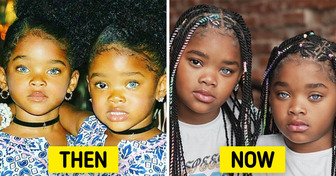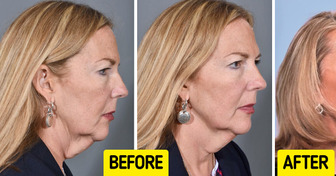I Decided to Follow the Trend of Praising Children Even If They Behave Like Little Monsters

Despite medical professionals telling her that her baby had no prospects for survival, Andi Mahoney was firm in refusing to accept such a fate. Today, her two-year-old daughter Emmie battles against her uncommon and frequently fatal condition and stands as a testament to the tenacity of perseverance, faith, and scientific advancements.
In November 2020, Andi Mahoney’s journey started with a usual visit to the doctor’s office for her 20-week scan when she had a scary surprise. The scan revealed that her baby had bilateral renal agenesis, a condition characterized by the absence of kidney development.
Statistics indicate that this condition affects approximately one in 5,000 births in the US. Moreover, over 40 percent of infants with this condition are stillborn, and those born alive typically survive only for a few hours.
Andi, however, wouldn’t give up so easily. Soon after the scan, she embarked on a quest to find a specialist, eventually connecting with Dr. Rueben Quintero from the Fetal Institute in Miami, undertaking a six-hour journey to get to the hospital.
Dr. Quintero explained to her that in the United States, only approximately 0.013% of cases are diagnosed annually and survival becomes nearly impossible due to the absence of fluid in the body. Without functioning kidneys, the baby is unable to excrete or ingest fluids as expected.
Although the precise cause of this condition remains unknown, a quarter of cases exhibit a genetic component. Moreover, bilateral renal agenesis, or Potter syndrome, inhibits the development of the baby’s lungs. Because of that, Andi had to intake fluid infusions for the baby over a ten-week period during her pregnancy.
In an interview, Andi remembered all her consistent traveling to Miami to acquire more fluid and to sustain Emmie’s life since the baby depended on that fluid for respiration. When she reached the 34-week milestone, she experienced an unnatural membrane rupture.
A ruptured membrane refers to the rupture of the amniotic sac before the onset of labor, which significantly heightens the risk of infection. In her search, Andi found a hospital in Stanford, California, known for handling previous cases of childbirth under similar circumstances.
Andi emotionally remembers this moment, saying, “I hopped on a flight from Jacksonville to California with my membranes ruptured. I wanted to go somewhere that would deliver me my Emmie. Also, they gave me hope that she would live.”
During the delivery, medical professionals were prepared to administer immediate oxygen to baby Emmie and swiftly take her into surgery. That meant that Andi didn’t get to meet her baby girl until after the surgery was done. Those initial days were filled with uncertainty and a lot of waiting.
Emmie entered the world on March 24, 2021, with doctors providing vital oxygen support, aiding her in the battle for survival. But the full challenges weren’t surpassed yet. Emmie’s underdeveloped lungs and urgent need for a kidney posed significant worries. Although people are typically born with two kidneys, living with just one can still sustain a healthy life. Kidneys play a crucial role in filtering waste from the body and maintaining fluid balance.
Andi’s kidney donation to her daughter brought a glimmer of hope. The transplant, performed on July 25, 2023, brought a moment of relief and joy. She expressed, “I received the best news of my life when I found out we had matching blood types and that I was approved for the surgery.” Without hesitation, she knew she had to give her kidney to Emmie.
Emmie’s hospital stay was extended until she was six months old. Even after leaving, she had to return to a California hospital for dialysis, a procedure vital for removing excess fluid and waste from the blood, ensuring her survival until the transplant from her mother.
Subsequently, the family relocated to Atlanta, Georgia, to be nearer to Children’s Healthcare of Atlanta, enabling two years of home-based outpatient dialysis. This continued until she reached two and a half years when her improved health marked the end of her dialysis treatment. The Mahoney family is also actively advocating for others to consider becoming kidney donors.











